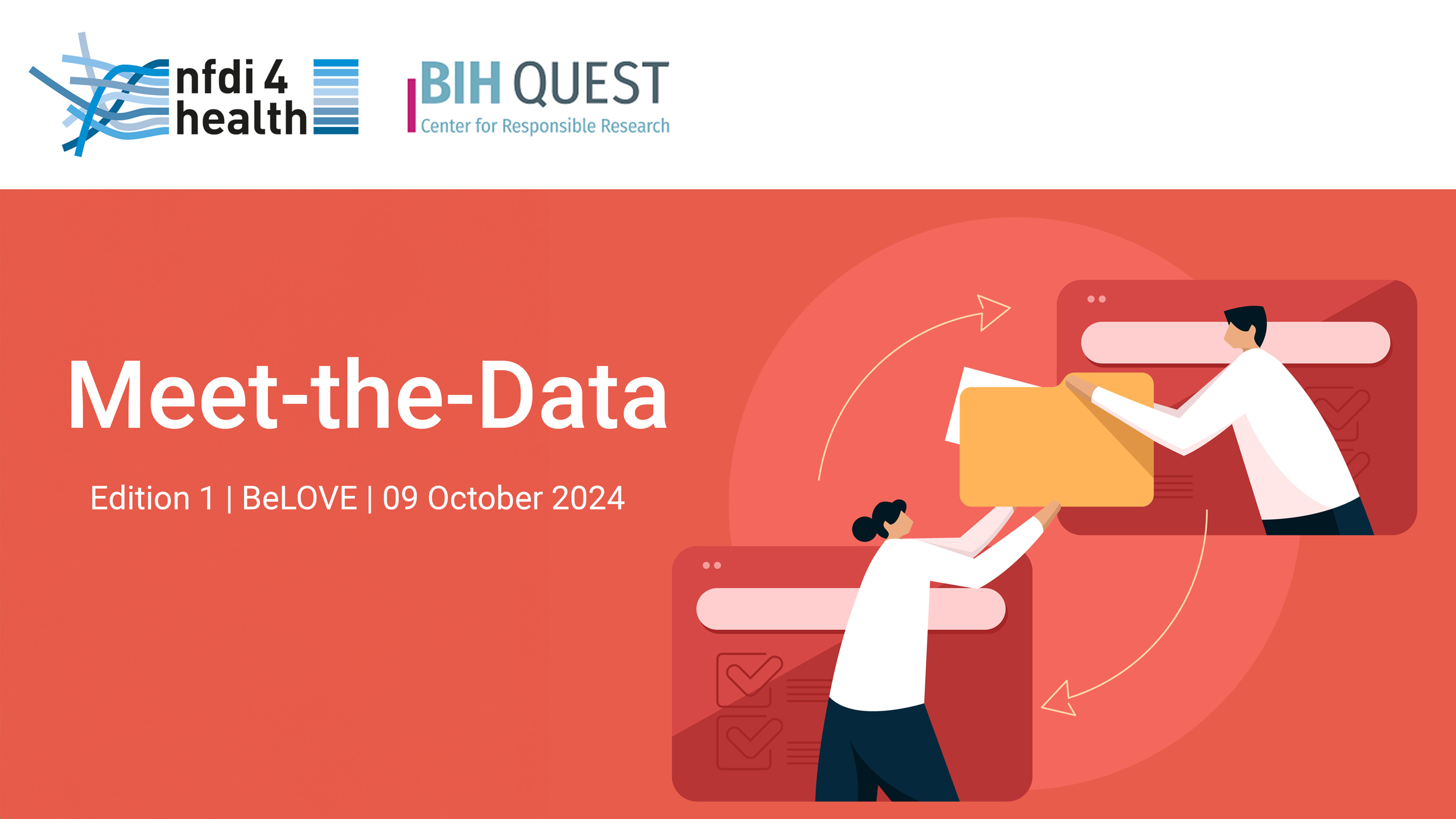From cohort studies and registries to epidemiological and clinical studies – these datasets can be requested by researchers to address new research questions. However, the application process is not uniformly regulated. Different legal regulations, varying data processing requirements, and the lack of a comprehensive infrastructure for research data have led to individual solutions. In our series, we aim to bring together data holders and researchers.
The first in this series is the BeLOVED study by the Berlin Institute of Health at Charité (BIH):
The Berlin Long-Term Observational Study of Vascular Events (BeLOVE) is a prospective longitudinal cohort study of patients who have either had an acute cardiovascular event (CVE) or are at chronic high risk for cardiovascular events. The aim of BeLOVE is to improve the short- and long-term prediction of disease progression, as well as the mechanistic understanding of cardiovascular disease in a high-risk patient population to provide the basis for novel disease management strategies. The data primarily include the results of in-depth on-site phenotyping directly after the acute cardiovascular event, after 3 months and in some cases 2, 4 and 6 years, as well as regular telephone interviews with a planned total observation period of 10 years. In addition, extensive multi-omics results are available from the biosamples obtained, which are continuously being expanded. During the session, Joachim Weber will present a tool for the descriptive inspection of the data (i2b2), as well as the application process established for BeLOVE and the application portal.
------------------
Please find more information about the series Meet-the-Data@ Gesundheitsforschung here or register directly via our registration form.
You can watch the video on YouTube here.
Organizers: NFDI4Health & BIH QUEST Center @Charité
 English
English  Deutsch
Deutsch 
